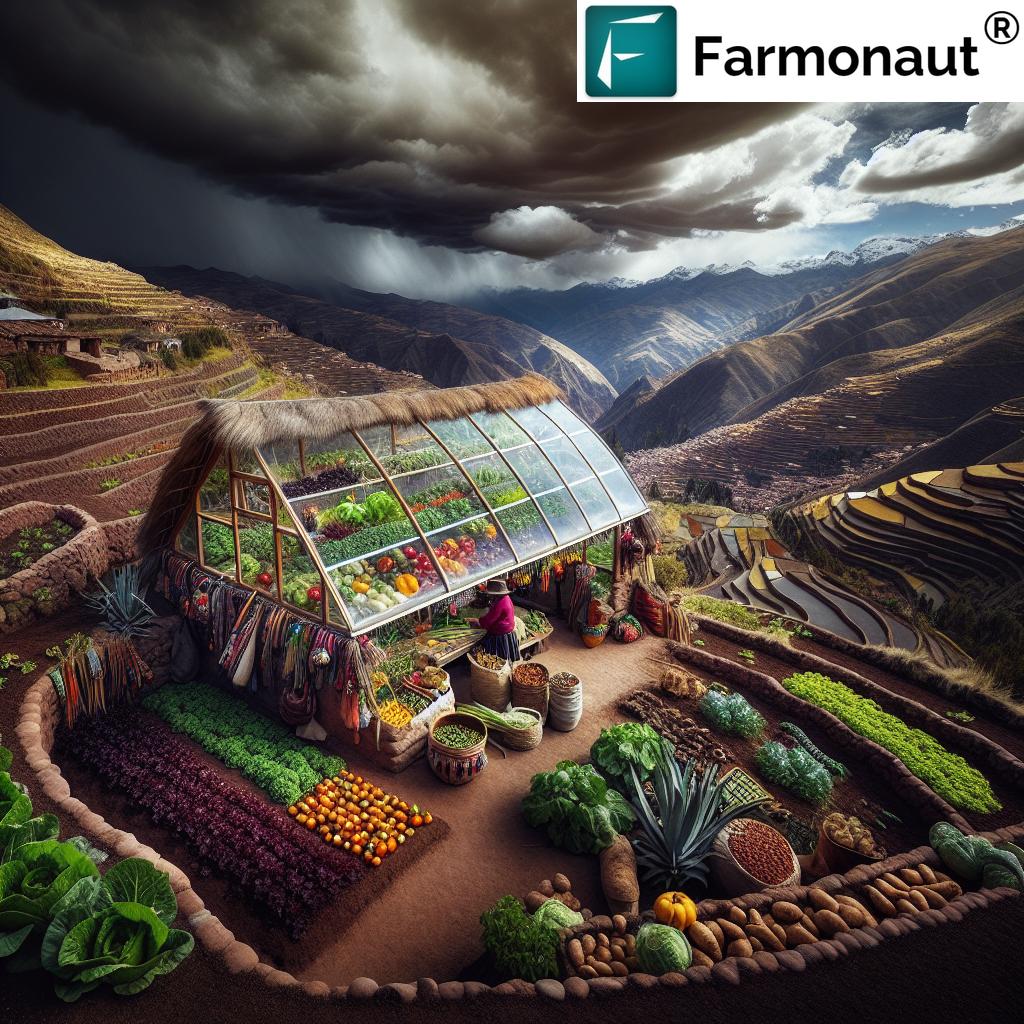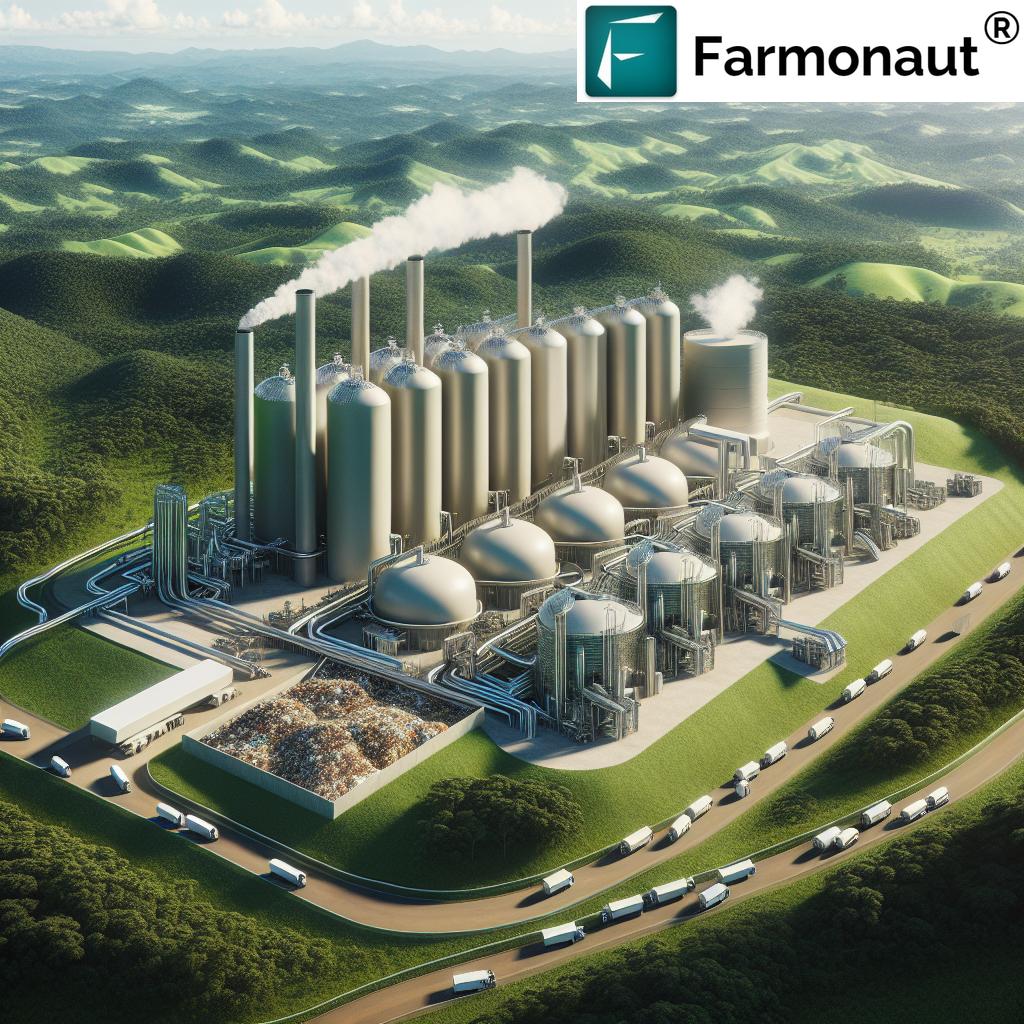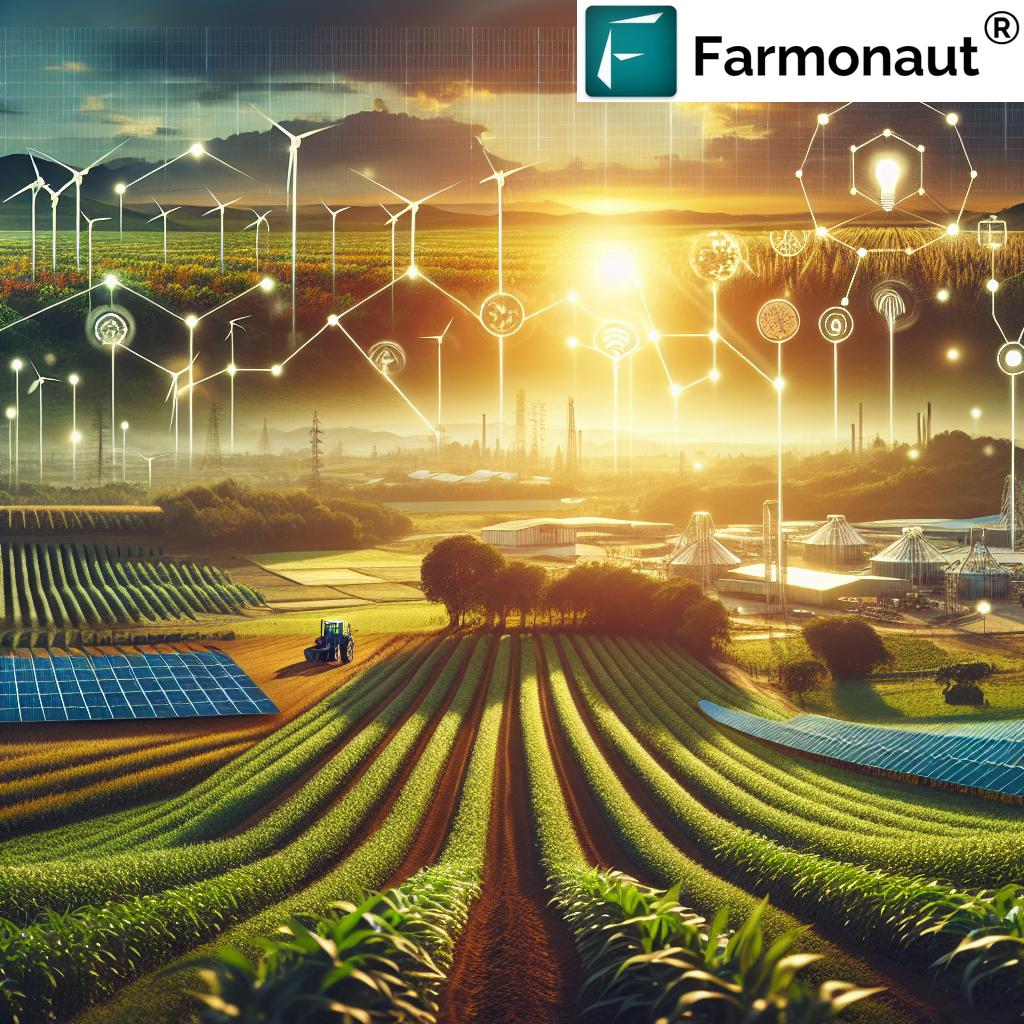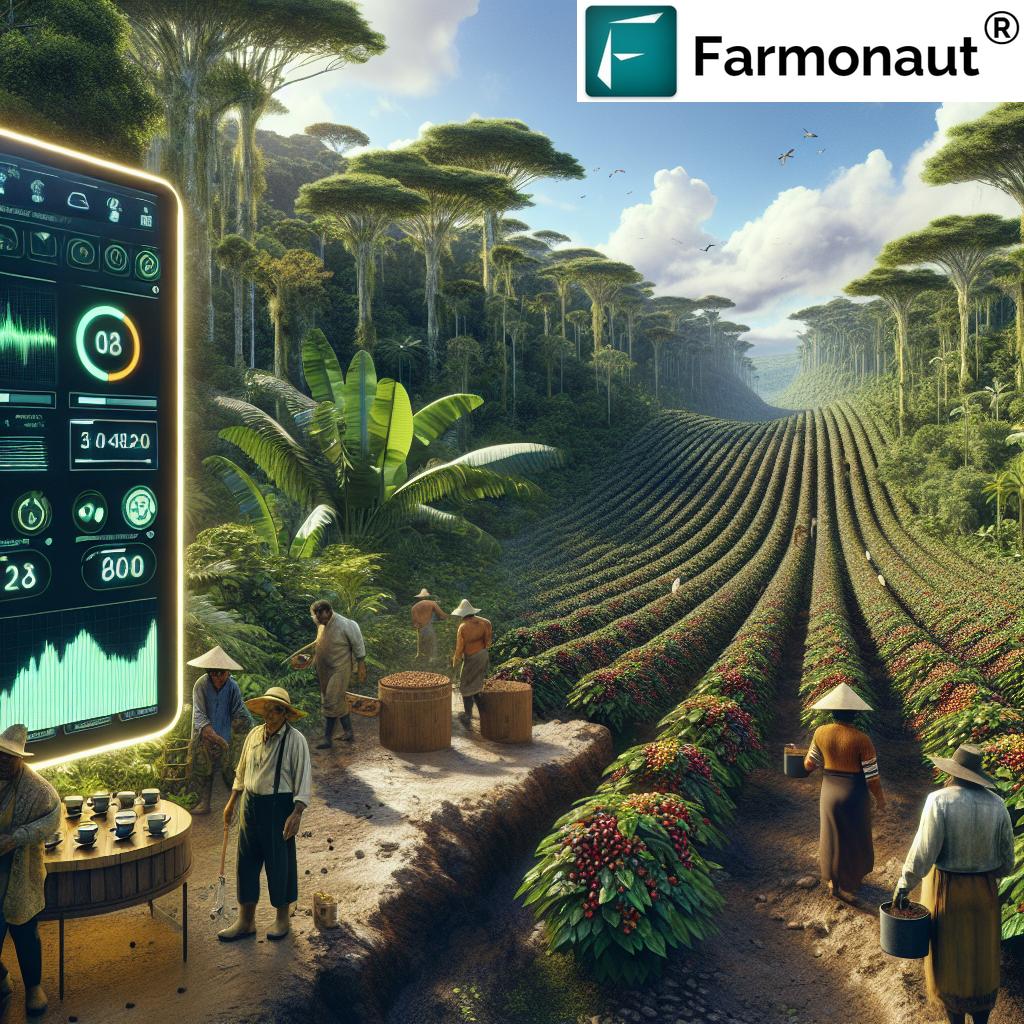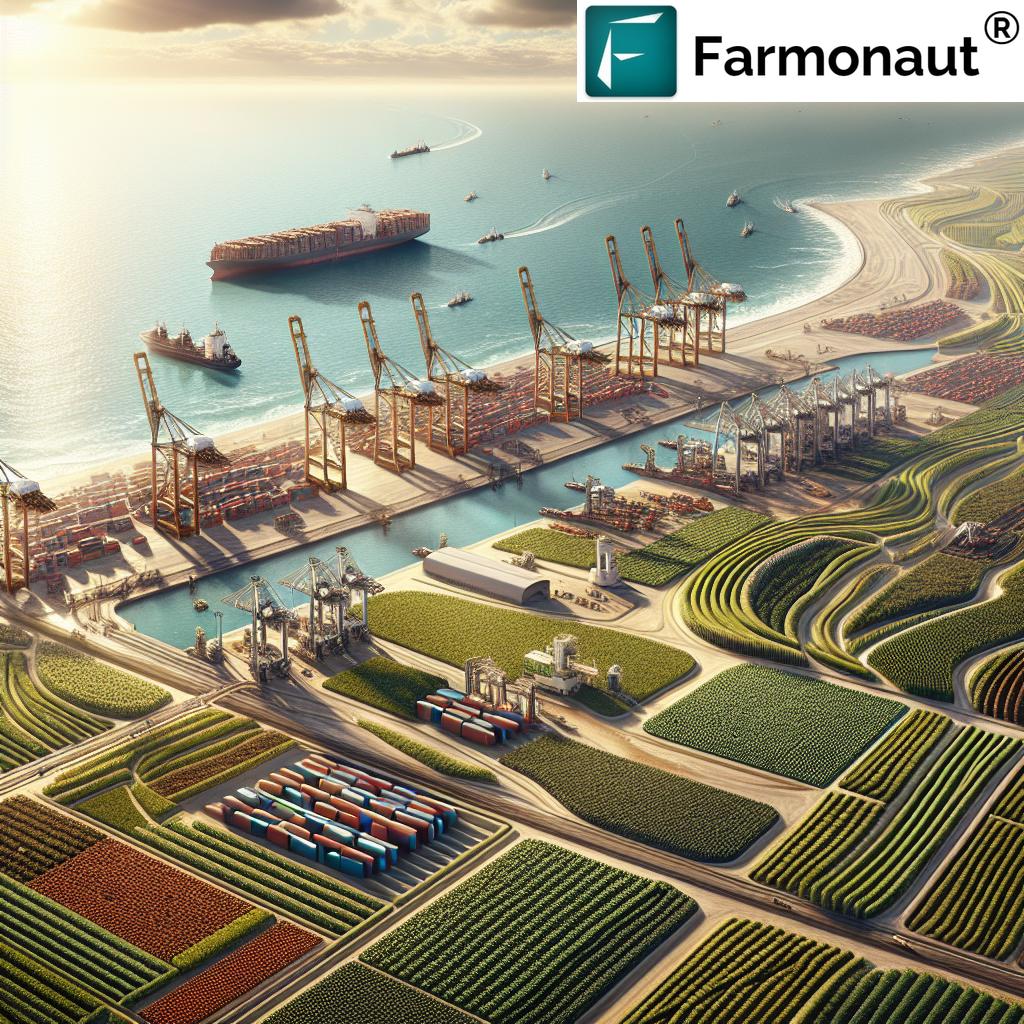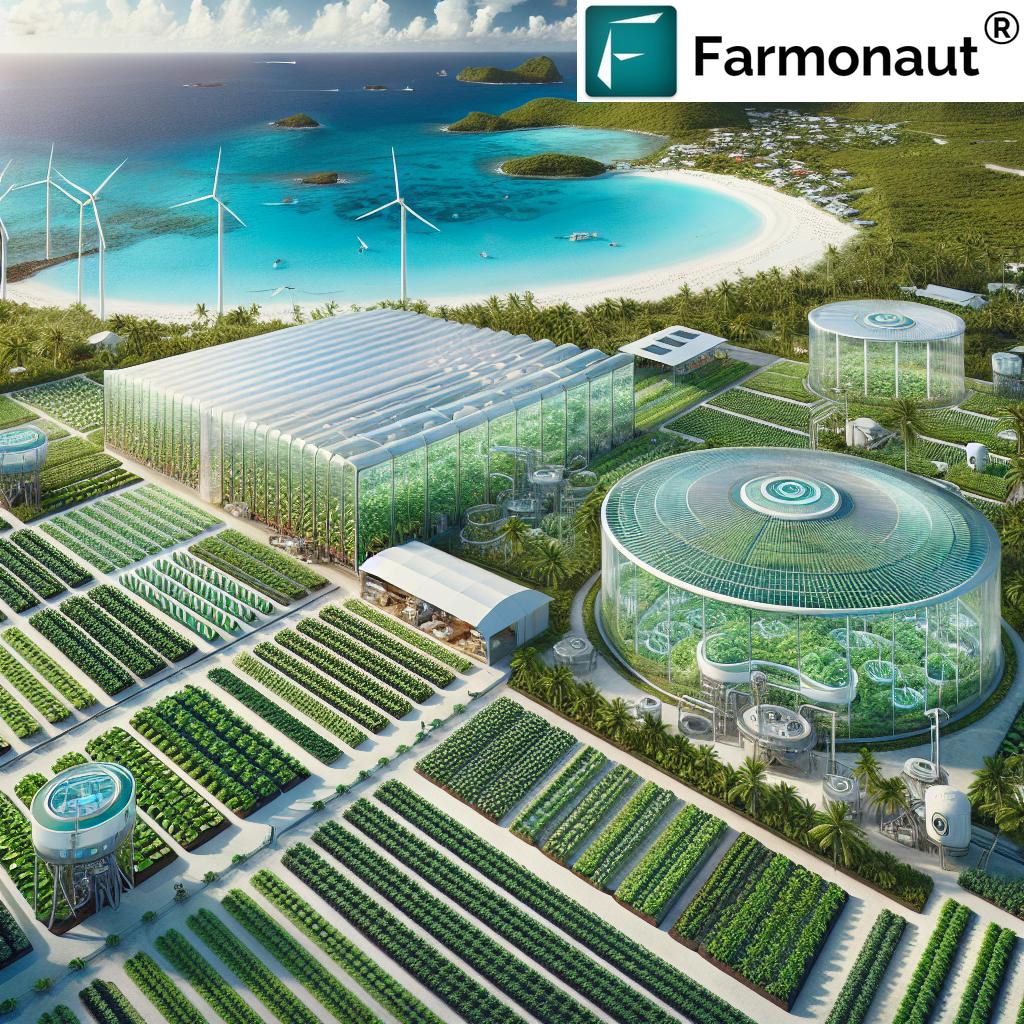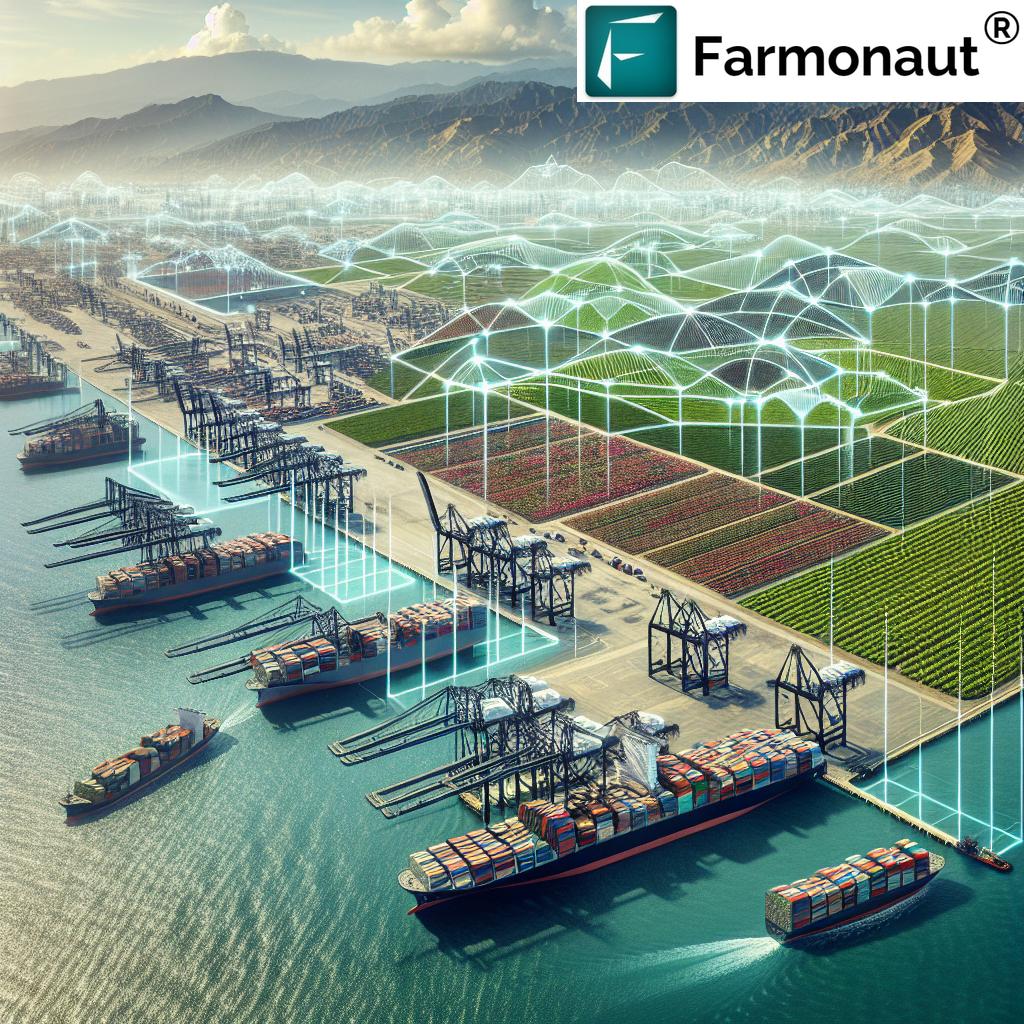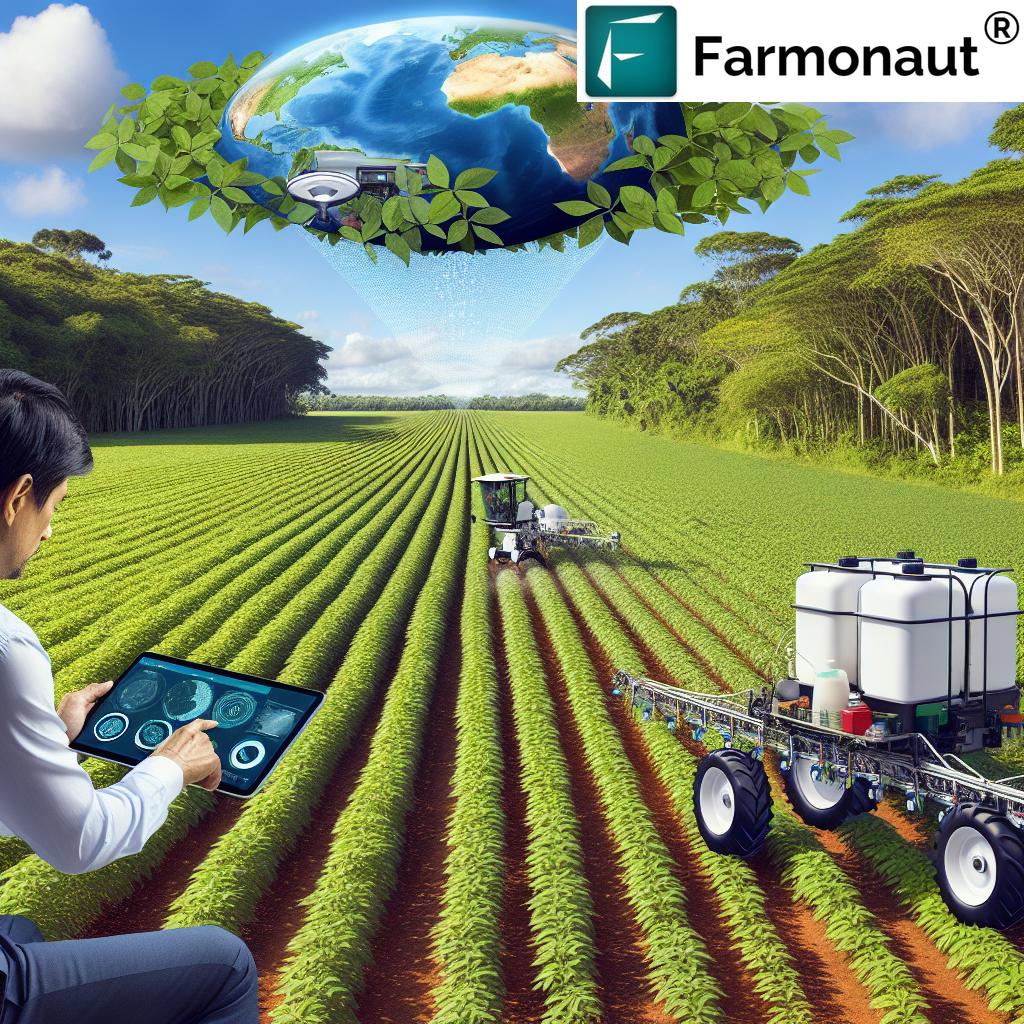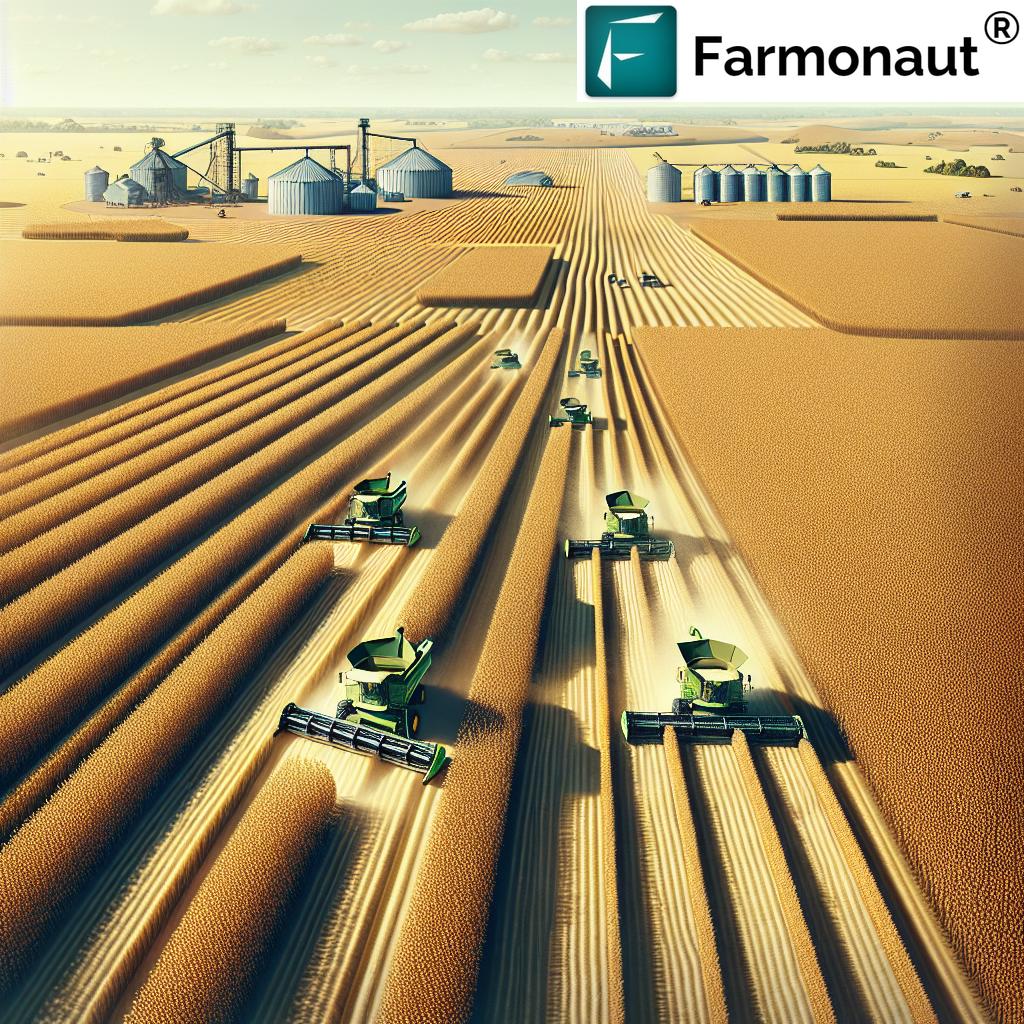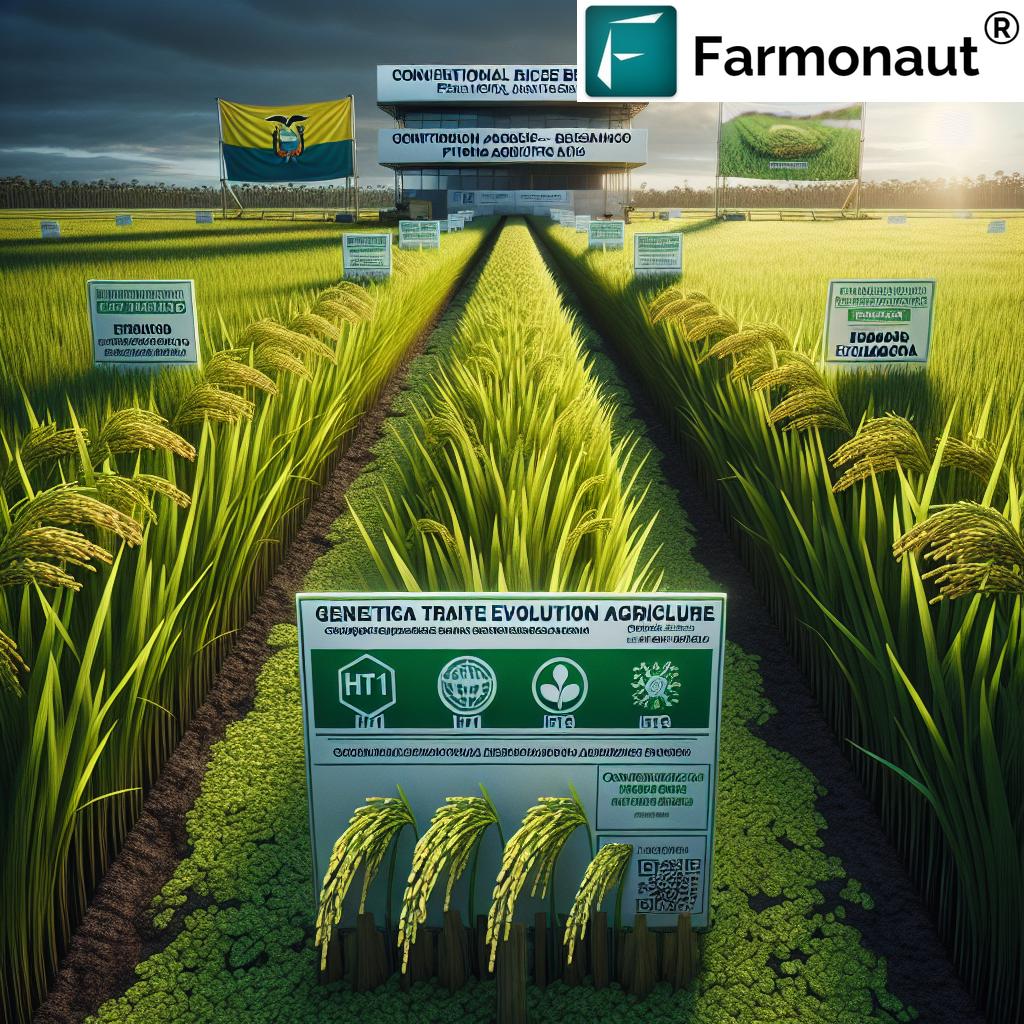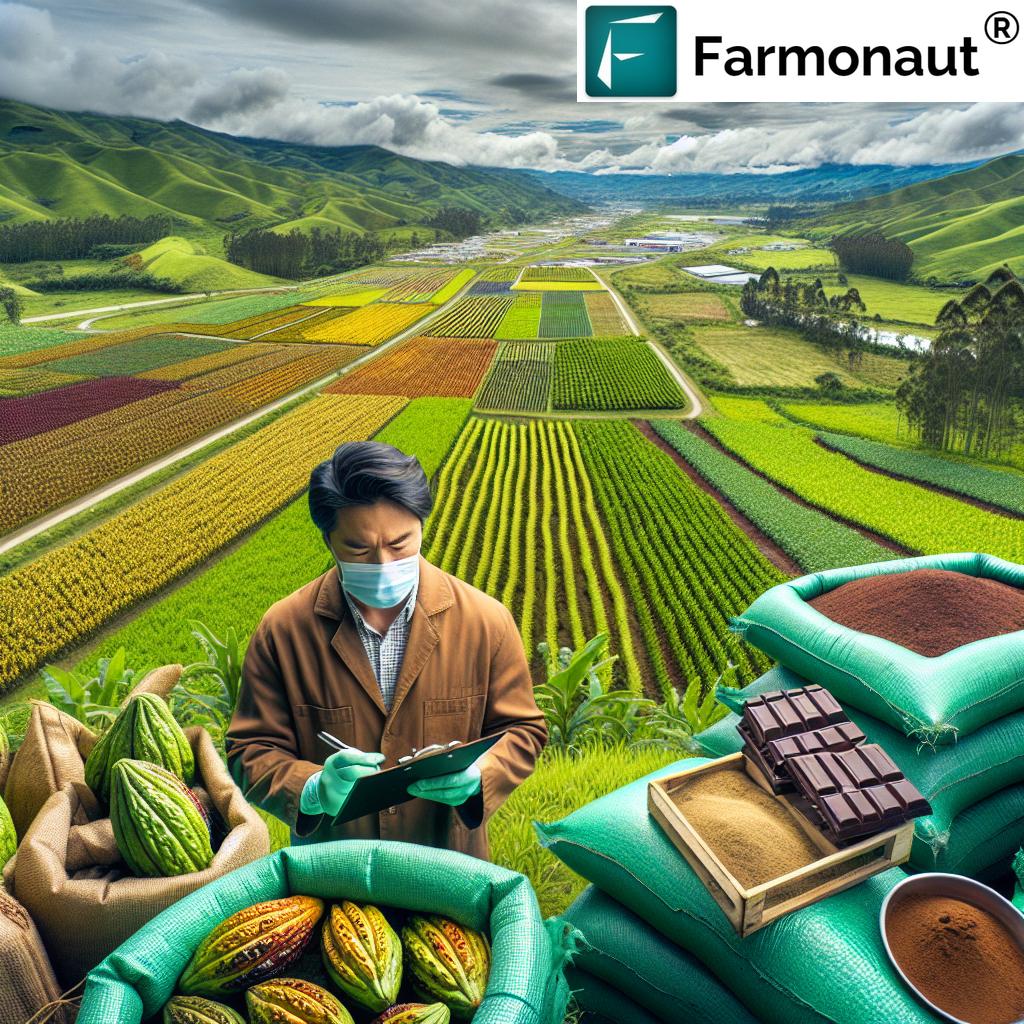Brazil’s Agricultural Revolution: Transforming Tropical Wheat Cultivation and Boosting Corn Exports
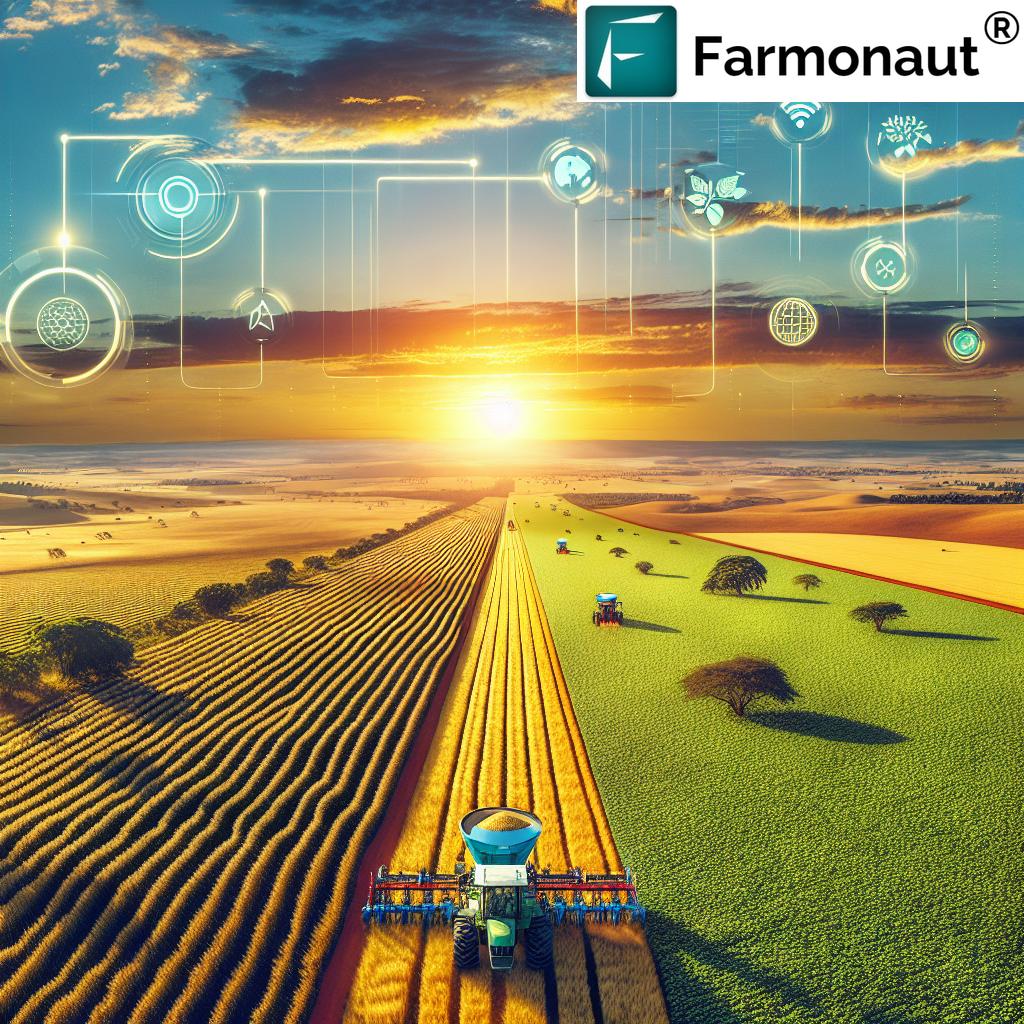
“Brazil’s corn exports grew from 1 million tons in 2000 to over 50 million tons in 2022, a 5000% increase.”
In the vast landscape of global agriculture, Brazil stands as a colossus, constantly evolving and pushing the boundaries of what’s possible in tropical farming. As we delve into the nation’s agricultural revolution, we’ll explore how Brazil is transforming its wheat cultivation practices and solidifying its position as a dominant corn exporter. This journey is not just about numbers and yields; it’s a testament to human ingenuity, scientific advancement, and the relentless pursuit of agricultural excellence.
The Wheat Odyssey: From Importer to Self-Sufficiency
Brazil’s quest for wheat self-sufficiency is nothing short of ambitious. Currently, the nation consumes over 12 million tonnes of wheat annually but produces approximately 9.5 million tonnes. This gap has historically positioned Brazil as one of the world’s largest wheat importers. However, the tides are turning, and the country is on a mission to drastically reduce its reliance on foreign wheat.
Over the past four decades, Brazil’s wheat production area has expanded significantly. This growth has been so substantial that the country’s self-sufficiency in wheat has skyrocketed from a mere 30% to an impressive 80% by the 2022-23 harvest period. But what’s driving this remarkable transformation?
- Technological Advancements: Improved farming techniques and crop varieties
- Research and Development: Focused efforts on adapting wheat to tropical conditions
- Government Support: Policies encouraging domestic wheat production
- Market Demand: Increasing need for locally-sourced wheat products
The volume of wheat milled in Brazil is on an upward trajectory, with 12.81 million tonnes processed in 2023. This increase reflects the continuous efforts of farmers and researchers to boost yields and overall production. It’s a testament to Brazil’s commitment to becoming a powerhouse in wheat cultivation, mirroring its success stories in corn and soybean production.
Tropical Wheat: A Game-Changer in the Cerrado
At the heart of Brazil’s wheat revolution lies an innovative approach: cultivating wheat varieties in the Cerrado biome. This vast tropical savanna, covering about 20% of Brazil’s land area, is becoming the new frontier for wheat production. But why is this shift so significant?
The Cerrado-adapted wheat varieties are resistant to dry weather conditions, a crucial trait in this region’s climate. This adaptation mirrors the historical transformation Brazil witnessed with corn and soybeans, which transitioned from import dependency in the 1980s to making Brazil a primary exporter in recent years.
Key benefits of tropical wheat cultivation in the Cerrado include:
- Minimal rainfall requirements, making it ideal for water-scarce regions
- Perfect crop for rotation with soybeans and corn
- Improved pest and disease management through crop diversity
- Utilization of previously underused agricultural land
The success of tropical wheat in the Cerrado is not just a win for Brazil’s wheat industry; it’s a blueprint for sustainable agriculture in challenging climates worldwide. As climate change continues to impact traditional wheat-growing regions, Brazil’s innovations in tropical wheat could become a global model for adaptation and resilience in agriculture.
The Corn Conquest: Brazil’s Rise to Global Dominance
While wheat is making strides, corn has been Brazil’s true success story in recent years. The nation has experienced remarkable growth in corn production, catapulting it to the top position as the world’s leading corn exporter. This achievement came to fruition following Brazil’s market access to China in late 2022, a move that reshaped the global corn trade landscape.
Brazil’s corn export journey is nothing short of extraordinary:
- Exponential growth from 1 million tons in 2000 to over 50 million tons in 2022
- Overtaking the United States as the world’s largest corn exporter
- Diversification of export markets, with China becoming a major buyer
- Improvements in infrastructure to support increased export volumes
However, the corn export story isn’t without its challenges. Recent shifts in demand from China have impacted Brazil’s corn exports, highlighting the volatile nature of agricultural trade. This volatility underscores the need for Brazil to continue diversifying its export markets and investing in domestic corn processing capabilities.
Soybean Supremacy: Brazil’s Green Gold
No discussion of Brazil’s agricultural revolution would be complete without mentioning soybeans. Brazil continues to thrive in the soybean sector, with record production and exports expected in the upcoming year. This success is driven by favorable market conditions and significant investments in technology.
Key factors contributing to Brazil’s soybean dominance include:
- Expansion of planted area, particularly in the Cerrado region
- Adoption of high-yield, genetically modified soybean varieties
- Improved farming practices and precision agriculture techniques
- Strong global demand, especially from China
The soybean industry’s success has had a ripple effect on Brazil’s economy, driving investments in infrastructure, research, and related industries such as crushing and biodiesel production.
“Brazil aims to produce 16 million tons of wheat by 2030, potentially eliminating the need for imports.”
Ethanol: Fueling Brazil’s Green Economy
Brazil’s agricultural prowess extends beyond food crops to the energy sector, particularly in ethanol production. The country remains a leading player in the global ethanol market, with a robust ethanol program that has evolved significantly since the 1970s.
Key aspects of Brazil’s ethanol industry include:
- Sugar cane as the primary feedstock for ethanol production
- Rapid growth in corn ethanol production in recent years
- Increased infrastructure supporting ethanol distribution and use
- Government policies promoting ethanol as a renewable fuel source
The surge in corn ethanol production is particularly noteworthy, as it complements the traditional sugar cane-based ethanol industry. This diversification not only adds value to Brazil’s corn production but also enhances the country’s energy security and reduces its carbon footprint.
Explore Farmonaut’s API for advanced agricultural insights
Challenges and Opportunities in Brazil’s Agricultural Landscape
While Brazil’s agricultural sector is booming, it’s not without its challenges. The nation faces several hurdles as it continues to expand its agricultural frontiers:
- Sustainability Concerns: Balancing agricultural expansion with environmental conservation, particularly in the Amazon and Cerrado regions
- Infrastructure Limitations: Need for improved transportation and storage facilities to support increased production and exports
- Market Volatility: Dependence on global commodity prices and changing demand patterns
- Climate Change: Adapting to changing weather patterns and extreme events
- Technological Adoption: Ensuring widespread access to modern agricultural technologies across diverse farm sizes
Despite these challenges, Brazil’s agricultural sector is well-positioned to capitalize on new growth opportunities. The country’s natural advantages, combined with ongoing investments in agricultural technology and research, set the stage for continued expansion and innovation.
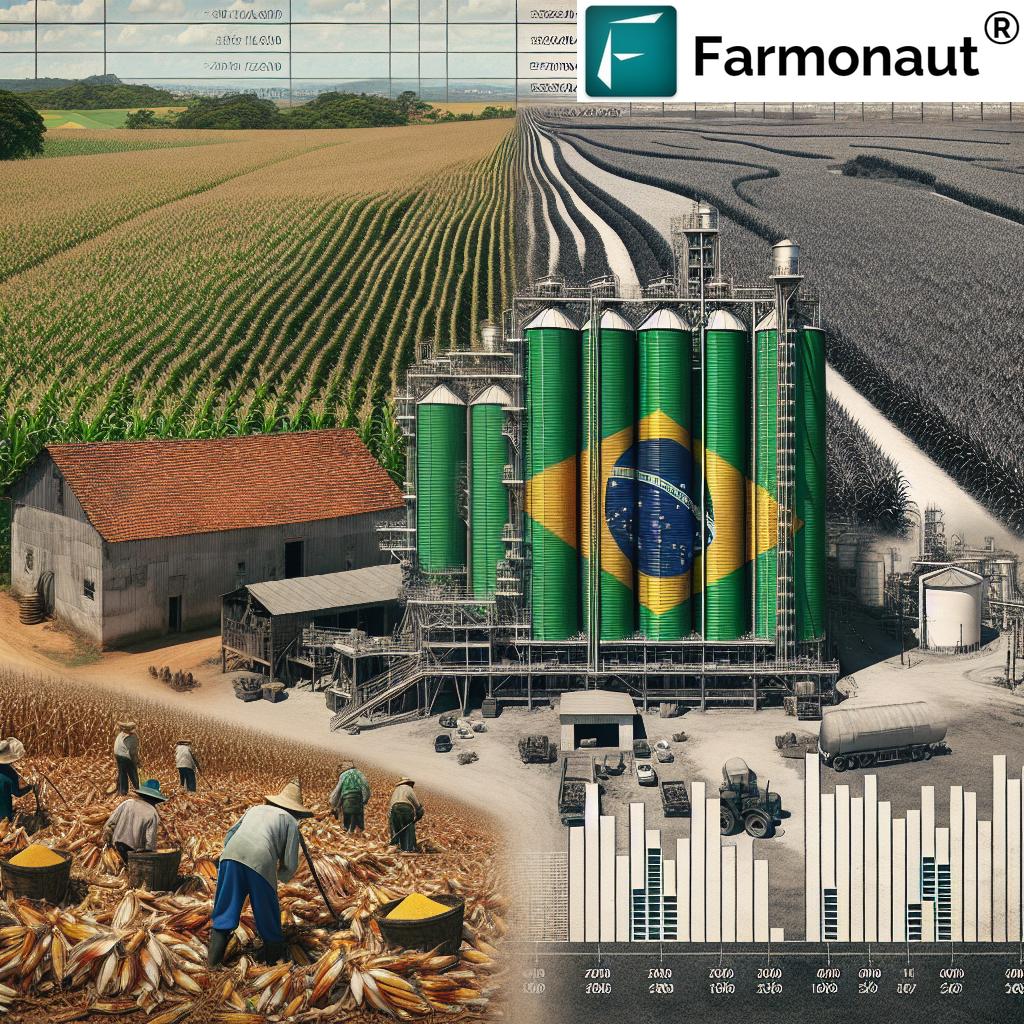
The Role of Technology in Brazil’s Agricultural Revolution
At the forefront of Brazil’s agricultural transformation is the adoption of cutting-edge technologies. From precision farming to genetic engineering, Brazil is leveraging a wide array of technological solutions to boost productivity and sustainability.
Key technological advancements include:
- Satellite-Based Monitoring: Using remote sensing for crop health assessment and yield prediction
- Precision Agriculture: Employing GPS-guided machinery for optimal resource use
- Biotechnology: Developing drought-resistant and high-yield crop varieties
- Big Data and AI: Analyzing vast amounts of agricultural data for informed decision-making
- IoT in Agriculture: Implementing sensor networks for real-time monitoring of crops and livestock
These technological advancements are not just improving yields; they’re also contributing to more sustainable farming practices. By optimizing resource use and reducing environmental impact, Brazil is paving the way for a more sustainable agricultural future.
Access Farmonaut’s API Developer Docs for detailed integration guidelines
Brazil’s Agricultural Transformation: A Comparative Analysis
| Year | Wheat Production (million tons) | Corn Production (million tons) | Soybean Production (million tons) | Total Exports (billion USD) |
|---|---|---|---|---|
| 2013 | 5.5 | 80.3 | 81.7 | 99.9 |
| 2015 | 5.5 | 85.3 | 97.5 | 88.2 |
| 2017 | 4.3 | 97.8 | 114.6 | 96.0 |
| 2019 | 5.2 | 101.0 | 119.7 | 96.8 |
| 2021 | 7.7 | 87.0 | 138.2 | 120.6 |
| 2023 | 9.5 | 125.5 | 154.6 | 159.1 |
This table illustrates the remarkable growth in Brazil’s key agricultural sectors over the past decade. The steady increase in wheat production reflects the country’s focus on tropical wheat cultivation, while the substantial growth in corn and soybean production underscores Brazil’s transition from importer to major exporter. The rise in total exports demonstrates the significant economic impact of these agricultural advancements.
The Future of Brazilian Agriculture: Trends and Predictions
As we look to the future, several trends are likely to shape Brazil’s agricultural landscape:
- Continued Expansion of Tropical Agriculture: Further development of crops adapted to Brazil’s unique climate conditions
- Increased Focus on Sustainability: Adoption of more environmentally friendly farming practices to address global concerns
- Technological Integration: Greater use of AI, IoT, and blockchain in agricultural operations
- Diversification of Export Markets: Reducing dependence on specific countries by expanding global trade partnerships
- Value-Added Products: Moving beyond raw commodity exports to processed and specialized agricultural products
These trends suggest that Brazil is not just content with its current agricultural success but is actively preparing for future challenges and opportunities in the global food market.
The Global Impact of Brazil’s Agricultural Revolution
Brazil’s agricultural transformation is not just a national success story; it has significant implications for global food security and international trade dynamics. As one of the world’s largest food producers and exporters, Brazil’s agricultural policies and production trends have far-reaching effects:
- Global Food Supply: Brazil’s increased production helps meet the growing global demand for food
- Price Stabilization: Brazilian exports can help stabilize global commodity prices
- Trade Patterns: Shifts in Brazilian exports influence global agricultural trade flows
- Technological Transfer: Brazil’s agricultural innovations can be adapted and applied in other tropical regions
- Environmental Considerations: Brazil’s agricultural practices impact global discussions on sustainability and climate change
As Brazil continues to innovate and expand its agricultural capabilities, its role in shaping global food systems and trade patterns will only grow more significant.
Sustainable Farming Practices in Brazil’s Agricultural Landscape
While Brazil’s agricultural growth is impressive, there’s an increasing focus on sustainability. The country is adopting various practices to ensure long-term environmental and economic viability:
- No-Till Farming: Reducing soil erosion and improving soil health
- Integrated Crop-Livestock-Forest Systems: Enhancing biodiversity and land use efficiency
- Biological Pest Control: Minimizing chemical pesticide use
- Water Management: Implementing efficient irrigation systems to conserve water resources
- Agroforestry: Combining tree cultivation with agricultural crops for mutual benefits
These sustainable practices not only help preserve Brazil’s rich biodiversity but also contribute to the country’s commitments to reducing greenhouse gas emissions and combating climate change.
The Role of Research and Development in Brazil’s Agricultural Success
At the core of Brazil’s agricultural revolution is a robust research and development ecosystem. Organizations like EMBRAPA (Brazilian Agricultural Research Corporation) play a crucial role in driving innovation:
- Crop Breeding Programs: Developing varieties adapted to Brazil’s diverse climates
- Soil Management Research: Improving fertility in previously unproductive regions like the Cerrado
- Precision Agriculture Technologies: Creating tools for more efficient farming practices
- Biotechnology Advancements: Enhancing crop resistance to pests and diseases
- Climate Change Adaptation Studies: Preparing the agricultural sector for future environmental challenges
This commitment to research and development ensures that Brazil remains at the forefront of agricultural innovation, continually improving productivity and sustainability.
Conclusion: Brazil’s Path Forward in Global Agriculture
Brazil’s agricultural revolution, characterized by its transformation of tropical wheat cultivation and its dominant position in corn and soybean exports, is a testament to the country’s innovative spirit and agricultural prowess. As we’ve explored, this journey encompasses not just increased production, but also technological advancements, sustainable practices, and a commitment to research and development.
Looking ahead, Brazil’s agricultural sector faces both challenges and opportunities. The need to balance production growth with environmental conservation, adapt to climate change, and navigate volatile global markets will be crucial. However, with its vast natural resources, technological adoption, and innovative approach to farming, Brazil is well-positioned to maintain and expand its role as a global agricultural powerhouse.
As the world grapples with food security concerns and the impacts of climate change on agriculture, Brazil’s experiences and innovations offer valuable lessons and solutions. The country’s success in transforming previously unproductive lands, developing climate-resilient crops, and scaling up sustainable farming practices could serve as a model for other nations facing similar agricultural challenges.
In conclusion, Brazil’s agricultural revolution is not just a national success story but a global one, with far-reaching implications for food security, trade, and sustainable development. As we move forward, the world will undoubtedly continue to watch and learn from Brazil’s agricultural journey, as it shapes the future of global food production and environmental stewardship.
FAQ Section
Q1: What is driving Brazil’s focus on tropical wheat cultivation?
A1: Brazil’s focus on tropical wheat cultivation is driven by the desire to reduce wheat imports and achieve self-sufficiency. The country is leveraging its vast Cerrado biome and developing wheat varieties adapted to tropical conditions to expand production in non-traditional wheat-growing areas.
Q2: How has Brazil become a leading corn exporter?
A2: Brazil’s rise as a leading corn exporter is due to increased production, improved farming techniques, expansion of planted areas, and strategic market access, particularly to China. The country has also invested in infrastructure to support increased export volumes.
Q3: What role does technology play in Brazil’s agricultural revolution?
A3: Technology plays a crucial role in Brazil’s agricultural revolution through the adoption of precision farming techniques, satellite-based monitoring, biotechnology for crop improvement, and the use of big data and AI for informed decision-making in agriculture.
Q4: How is Brazil addressing sustainability concerns in agriculture?
A4: Brazil is addressing sustainability concerns by implementing practices such as no-till farming, integrated crop-livestock-forest systems, biological pest control, efficient water management, and agroforestry. These practices aim to balance production growth with environmental conservation.
Q5: What are the main challenges facing Brazil’s agricultural sector?
A5: The main challenges include balancing agricultural expansion with environmental conservation, improving infrastructure for transportation and storage, adapting to climate change, managing market volatility, and ensuring widespread adoption of modern agricultural technologies across diverse farm sizes.









